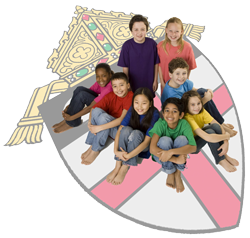Supporting Your Student in a Digital World

Supporting Your Student in a Digital World
Tips and Resources to Navigate Social Media, Technology and the Web with Your Teen
For today’s teens, navigating technology and social media is a challenge unlike any faced in any generation before. At a time in their lives when significant brain development is occurring, academic and social stressors seem heightened, and self-esteem can be fragile, the information and interactions accessible online and across social media can have significant impacts. The tips below (also available to download here in a printable resource) are focused on building a foundation for successful parent/teen conversations and partnerships to help your student manage the risks, avoid harm, understand how to evaluate information they access, and leverage technology in positive ways.
When and How to Start the Conversation
Creating a strong foundation for open communication is critical.
- Start Early
It’s best to start teaching your child about digital literacy and online safety from a young age. Helping children identify appropriate content and setting rules and boundaries for technology usage can create a valuable level of awareness to build on over time. - Foster Open Communication
Maintain open and non-judgmental communication with your teen about their online activities. Foster dialogue that encourages them to share their online experiences (good and bad) with you. - Educate Yourself & Stay “In the Know”
There is a constant stream of new platforms, new features, and new settings. Taking time to understand the channels where your teen is active and the digital trends and changes that might have them moving on to the next new thing is critical. Click here for a regularly updated list of new releases across the web to keep a pulse on what’s out there.Additional Resources for Reference
Consider adding the following sites to your online toolkit. Each offers helpful information to make staying in the know a bit easier. - Set Ground Rules
Establish clear rules and boundaries for digital device usage such as screen time limits, appropriate content, and when and where devices can be used.Example: Go Dark at Night for Better Rest
Good rest is vital and access to technology when it’s time to head to bed can be a distraction that leads to poor sleep. Establish a time with your teen for turning in devices to be kept in a safe space to charge overnight. Remove teen concerns and barriers like “but it’s my alarm,” and provide solutions for their objections. - Lead by Example
Model responsible digital behavior for your child. Show them how to use technology mindfully and they’ll be more likely to follow your lead. Practicing behaviors such as device-free times and zones and screen time limits can create deeper levels of understanding.
Topics to Emphasize
When it comes to responsibly using technology, there’s a LOT of ground to cover. Build a solid foundation with a focus on these core areas.
- Privacy and Security
Teach your teen the importance of online privacy and security. Show them how to use strong passwords, recognize phishing attempts, and protect their personal information. - Social Media Etiquette
Discuss the implications of online behavior, including the potential consequences of cyberbullying, oversharing, and the permanence of digital footprints.Free Family Resource
Common Sense Education has free resources to talk to your child about digital citizenship that are tailored to every age level. Check it out here. - Online Relationships
Talk to your teen about forming healthy online relationships. Share the reality of online deception, emphasize the risks of meeting strangers from the internet in person, and ensure your child understands the importance of never sharing personal information. - Media Literacy
Help your teen develop critical thinking skills to evaluate online information for accuracy and reliability. Teach them how to spot fake news and recognize biased sources. Common Sense Education offers a great resource to guide your tween or teen through this complex topic. Click here to check it out.
Tools & Resources for Effective Management & Monitoring
While empowering your teen with the information, resources and boundaries to effectively navigate technology is essential, of equal importance is monitoring and helping manage their behavior.
- Balance Offline and Online Activities
Encourage your teen to engage in offline activities, such as hobbies, sports, and spending time with friends and family, to maintain a healthy balance between their online and offline lives. - Monitoring Tools
Consider using parental control and monitoring software, but use them as a last resort and communicate your reasons with your teen. Trust is crucial in building a healthy relationship.Free Family Resource
New York Times recently offered a great roundup of parental control apps to manage screen time and keep kids safe online. Click here to check it out. - Cyberbullying and Online Safety
Discuss the signs of cyberbullying and encourage your teen to report any incidents they witness or experience. Make sure they know they can come to you for support. - Stay Updated Together
Share interesting articles or videos about digital trends and online safety with your teen. This can lead to discussions that help them develop a deeper understanding of the digital world. Common Sense Media offers a variety of resources you can use to stay up-to-date together. - Respect Their Independence
As your teen matures, grant them more independence online. Give them opportunities to make decisions about their online presence, with guidance and boundaries. - Seek Professional Help
If you are concerned about your teen’s online behavior or if they’re experiencing issues related to excessive screen time, cyberbullying, or mental health, don’t hesitate to seek guidance from a mental health professional or counselor.
Get the Printable Guide
Click the button below to download the printable guide featuring the tips above.
At York Catholic, digital citizenship is a topic of ongoing conversation. We focus on it in our direct student interactions, encourage critical thinking around the topic in our classrooms, and emphasize it as part of the school’s culture. If you have questions or are interested in learning more about York Catholic and our approach to cultivating partnerships with our YC families in each child’s education, reach out. We look forward to connecting.






